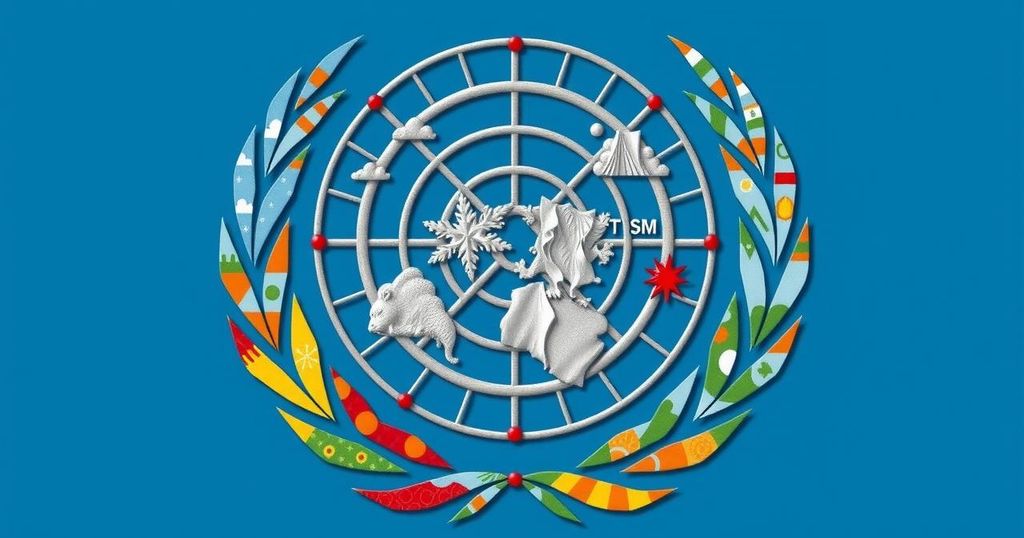COP29 in Azerbaijan exposed critical flaws in UN climate negotiations. Experts warn that financial commitments to vulnerable countries are insufficient, and reliance on the private sector raises concerns. The unresolved issues surrounding fossil fuel dependence and ineffective carbon trading regulations further complicate climate action. Calls for reform emphasize the need for accountability and equitable resource distribution.
The recent COP29 climate summit in Azerbaijan concluded, leaving many questioning the effectiveness of UN-led climate negotiations. Experts, including climate scientist Mark Maslin and infrastructure engineer Priti Parikh, warn that current commitments could result in global warming exceeding 3°C. Although nations have agreed to increase financial support for the world’s poorest and most vulnerable countries, this increase falls short of the substantial aid required. Critics argue that the agreed $300 billion per year in climate finance is inadequate and often comes with strings attached, reflecting historical inequities and inadequate responses to the climate crisis.
The absence of a universally accepted definition of “climate finance” complicates the situation. Wealthy nations propose a mix of loans and grants, often relying on the private sector to fill investment gaps. However, this reliance raises doubts, especially concerning the private sector’s willingness to fund climate-related projects adequately. The focus on financial transactions between developed and developing countries mirrors broader inequalities, with the poor nations often facing burdensome debt. Additionally, many countries suffering the most from climate change contribute negligibly to global emissions.
The current structure of COP meetings reveals significant flaws, particularly in tackling the issue of fossil fuel dependence. Despite previous commitments, progress appears stalled, and the host country’s longstanding ties to oil exacerbate challenges in confronting fossil fuel extraction. Rules surrounding carbon trading, established at COP29, have also drawn criticism for being poorly enforced and lacking credibility. Environmental and social justice issues go unaddressed amidst a lack of stringent regulations for carbon credits, leading to skepticism about their efficacy.
Howard Bamsey from Australian National University notes that, despite their imperfections, COP meetings provide a crucial platform for international dialogue. He emphasizes that defining clear, actionable steps and increasing transparency in negotiations would improve outcomes. With climate change perceived as less urgent, a shift in public perception and immediate action from leading emitters become imperative as the world faces escalating climate impacts.
The ongoing challenges at global climate summits, such as COP29, highlight a critical concern regarding international climate agreements. Each conference aims to formulate actionable strategies to mitigate the effects of climate change, yet skepticism persists regarding their effectiveness and fairness. Developed nations often pledge financial support to developing countries, but these financial commitments frequently include conditionalities that undermine their intended impact. Moreover, the complexity surrounding definitions and frameworks for climate finance further complicates the issue, particularly regarding accountability and equity in resource allocation. The engagement of the private sector in climate financing poses additional challenges and introduces concerns about prioritization and exploitation. These dynamics underscore the flaws within the current UN climate framework and the urgency for reform to achieve meaningful climate action.
In summary, COP29 has brought to light fundamental flaws in the UN climate negotiation process, particularly regarding financial commitments and the handling of emissions. Critics argue that the reliance on inadequate funding structures and the influence of fossil fuel interests hinder effective climate action. Emphasizing a fair redistribution of resources and holding polluters accountable presents a path toward addressing historical injustices in climate finance. While the COP meetings provide a necessary forum for international collaboration, urgent reform is needed to ensure that climate commitments translate into tangible actions that combat the profound impacts of climate change worldwide.
Original Source: www.downtoearth.org.in






